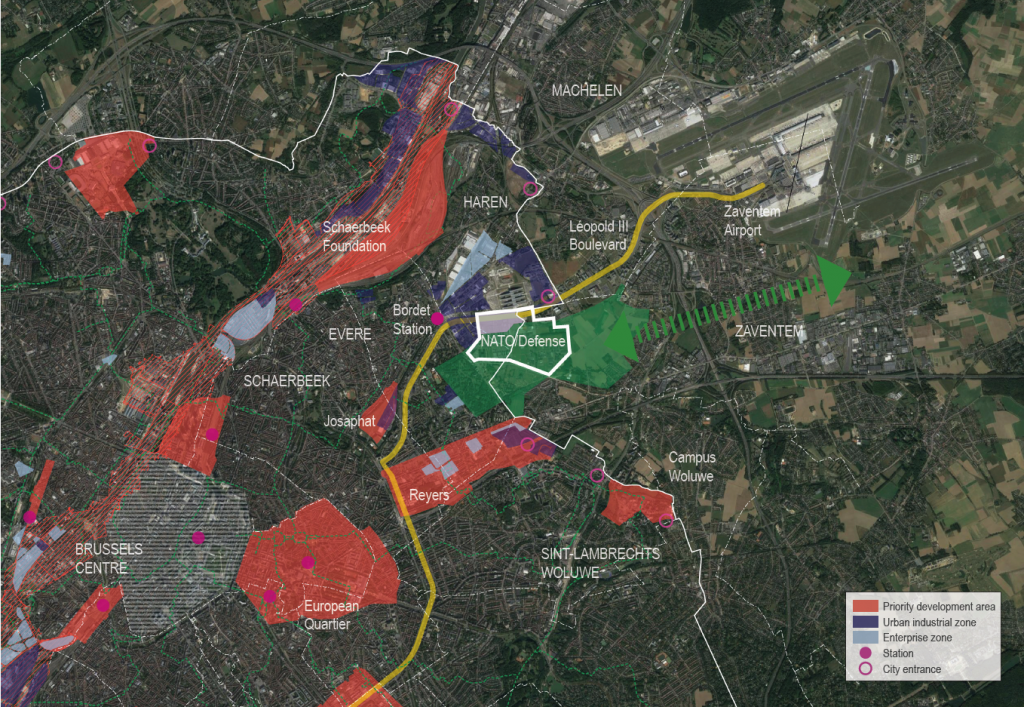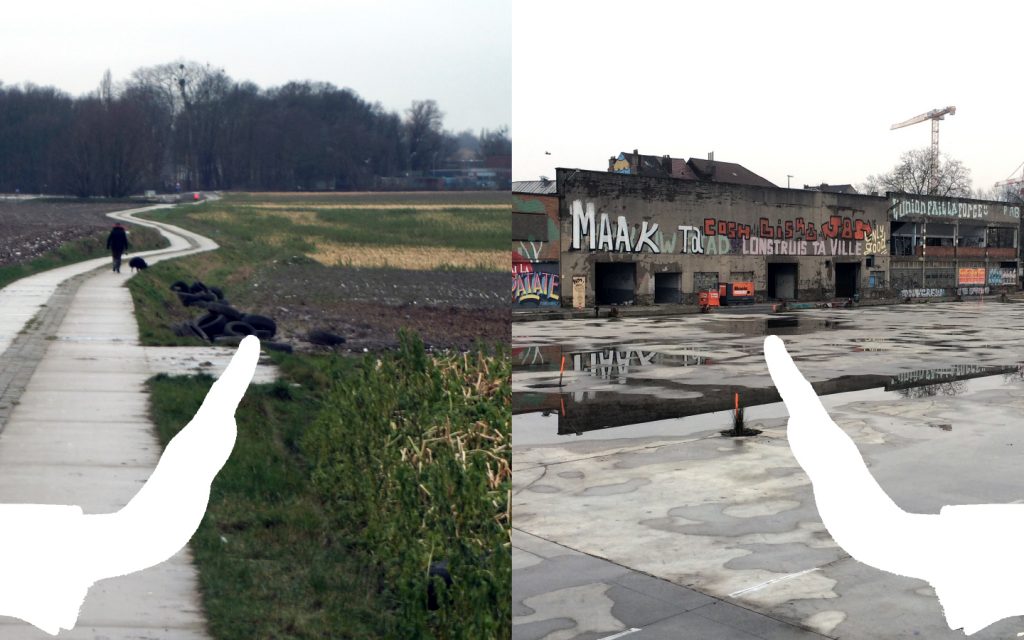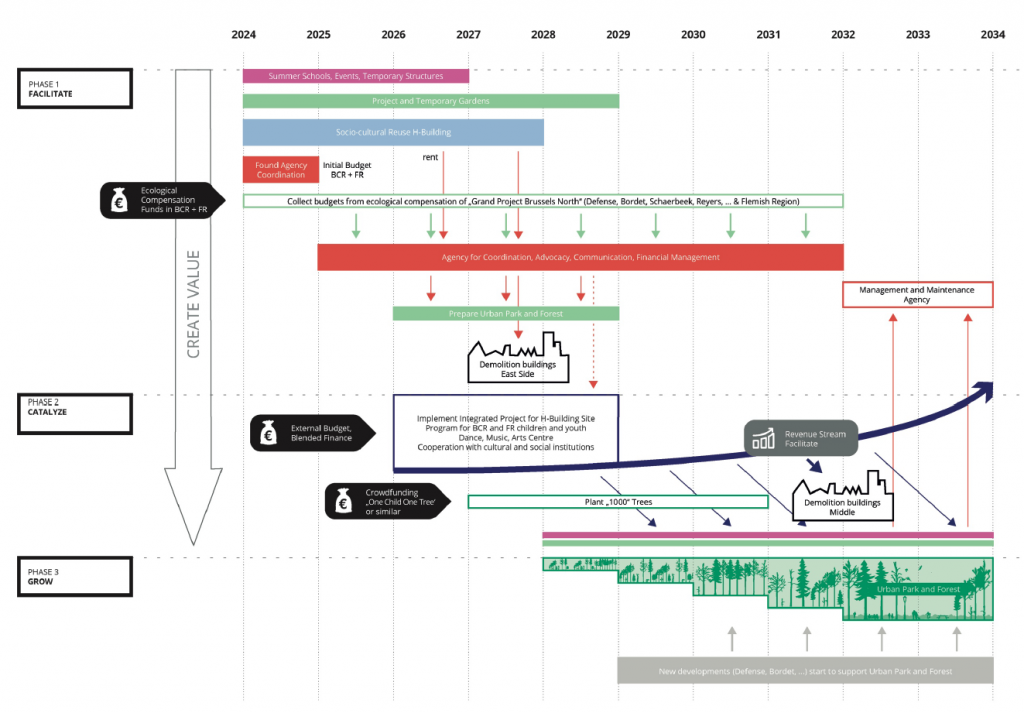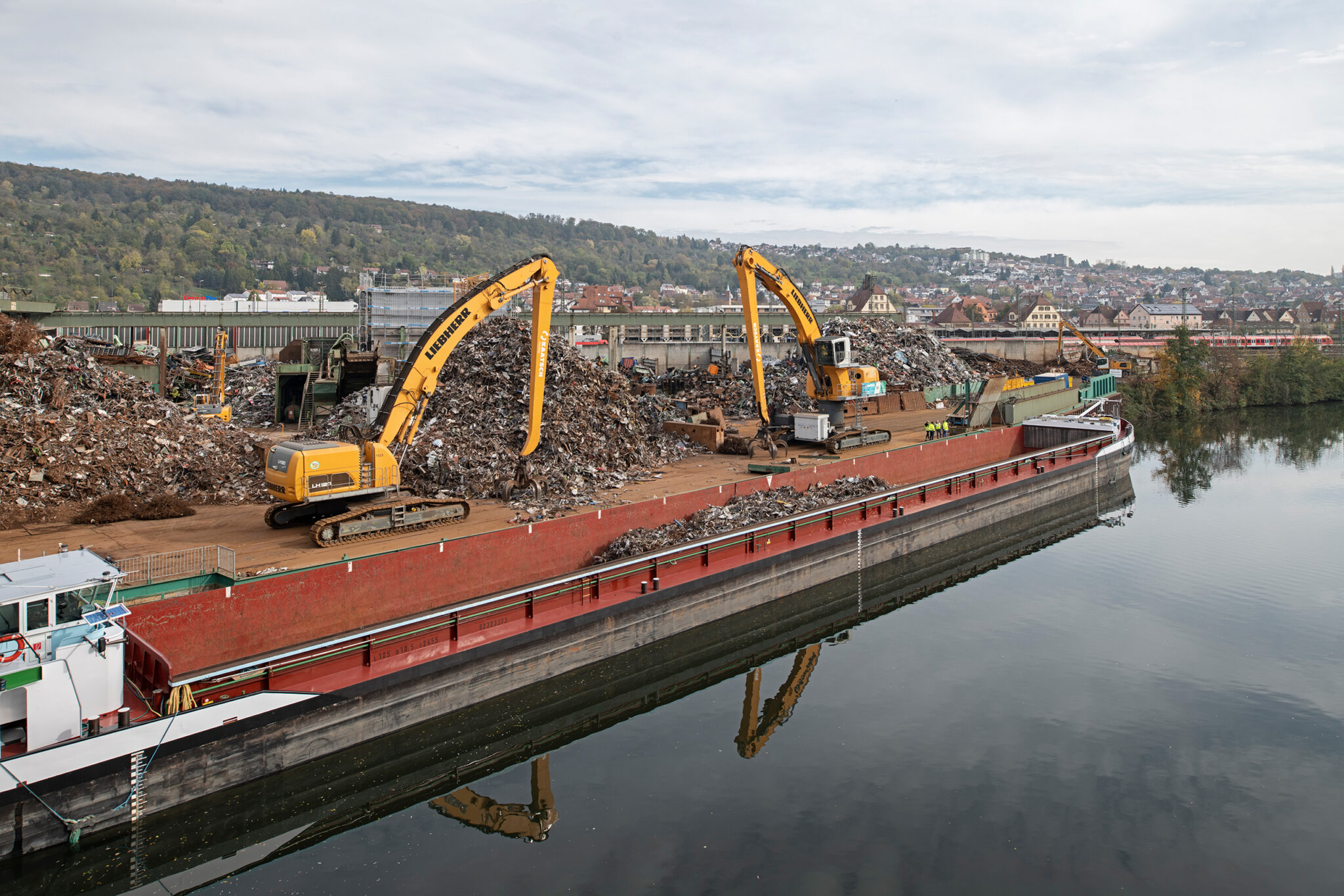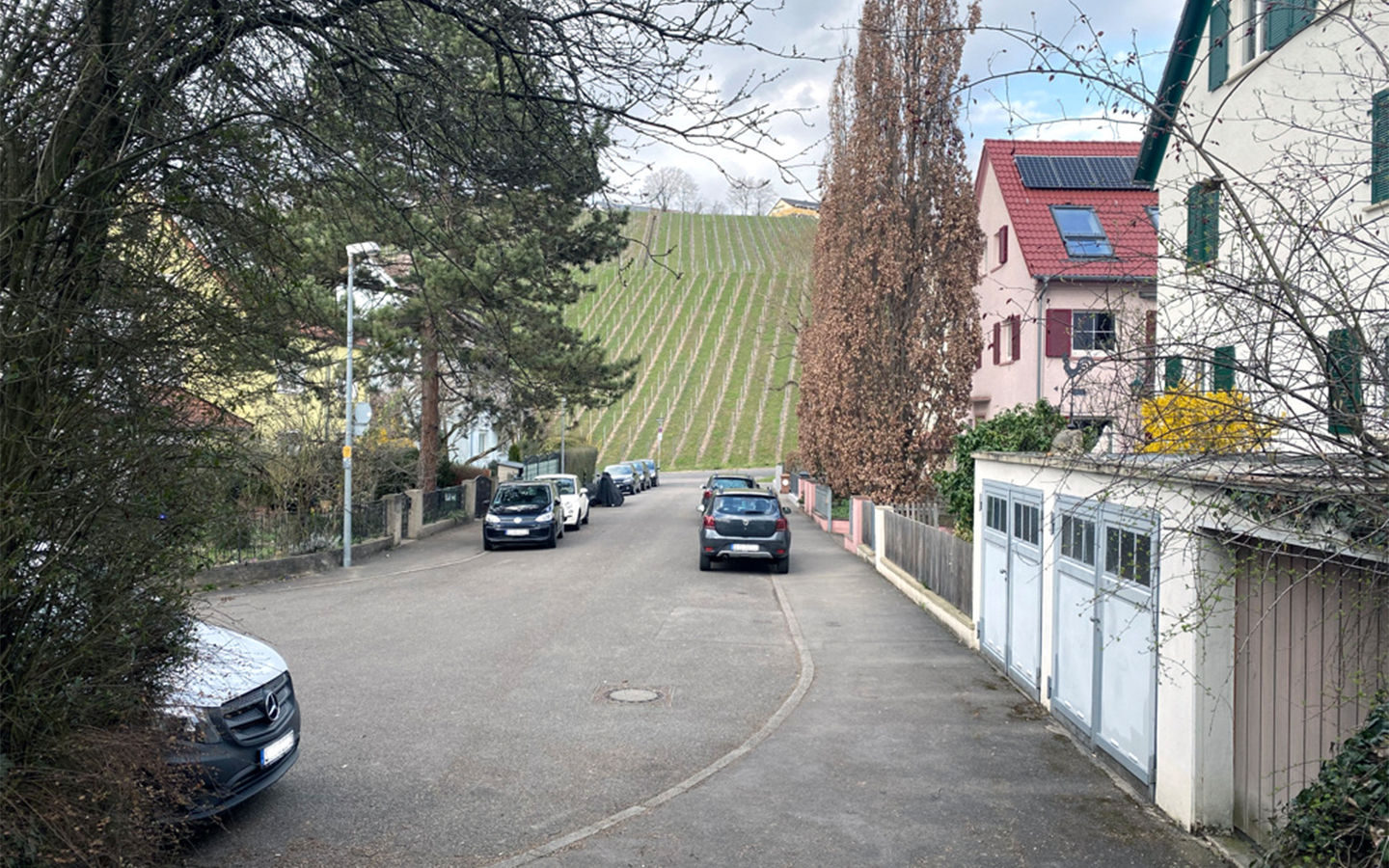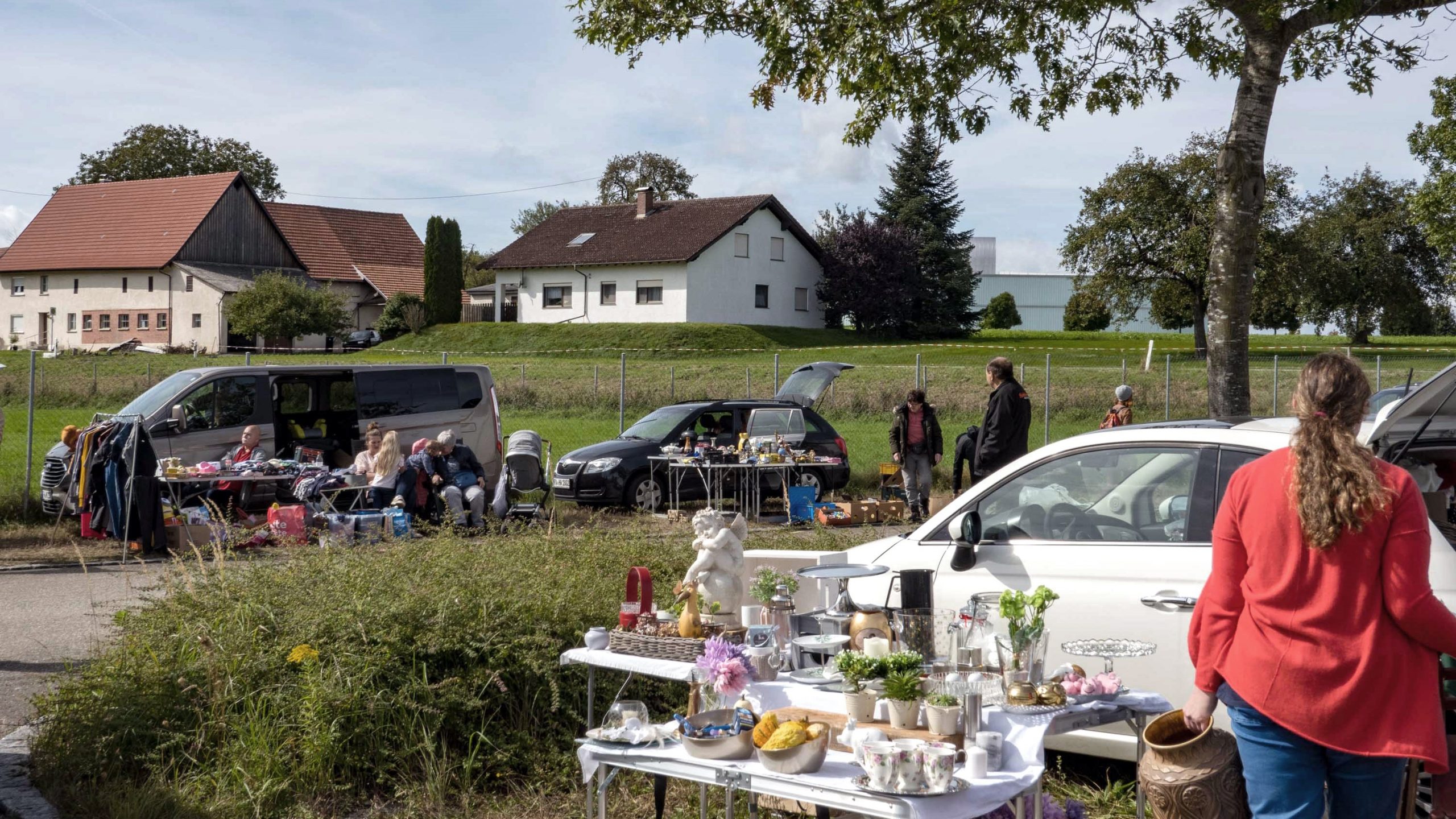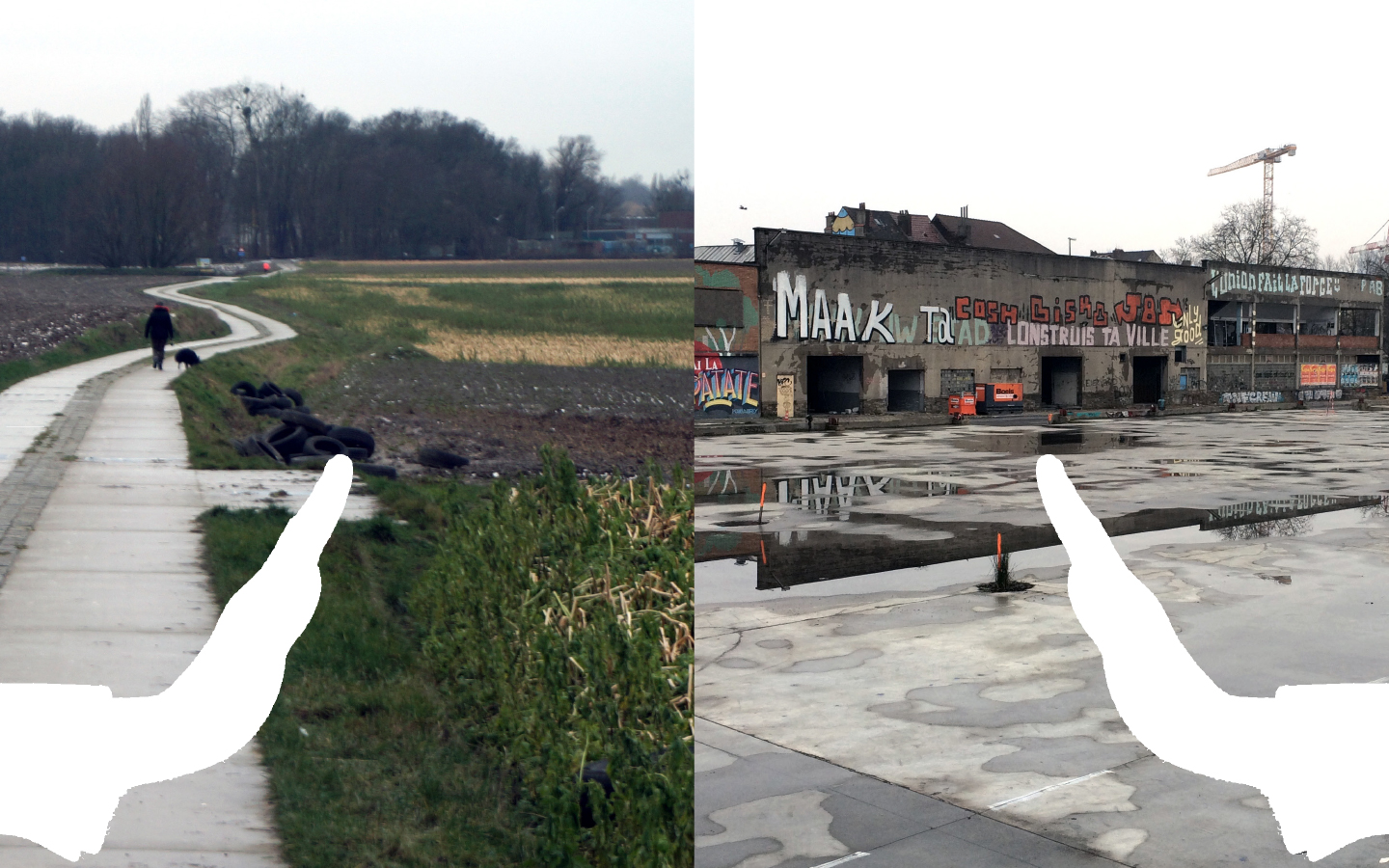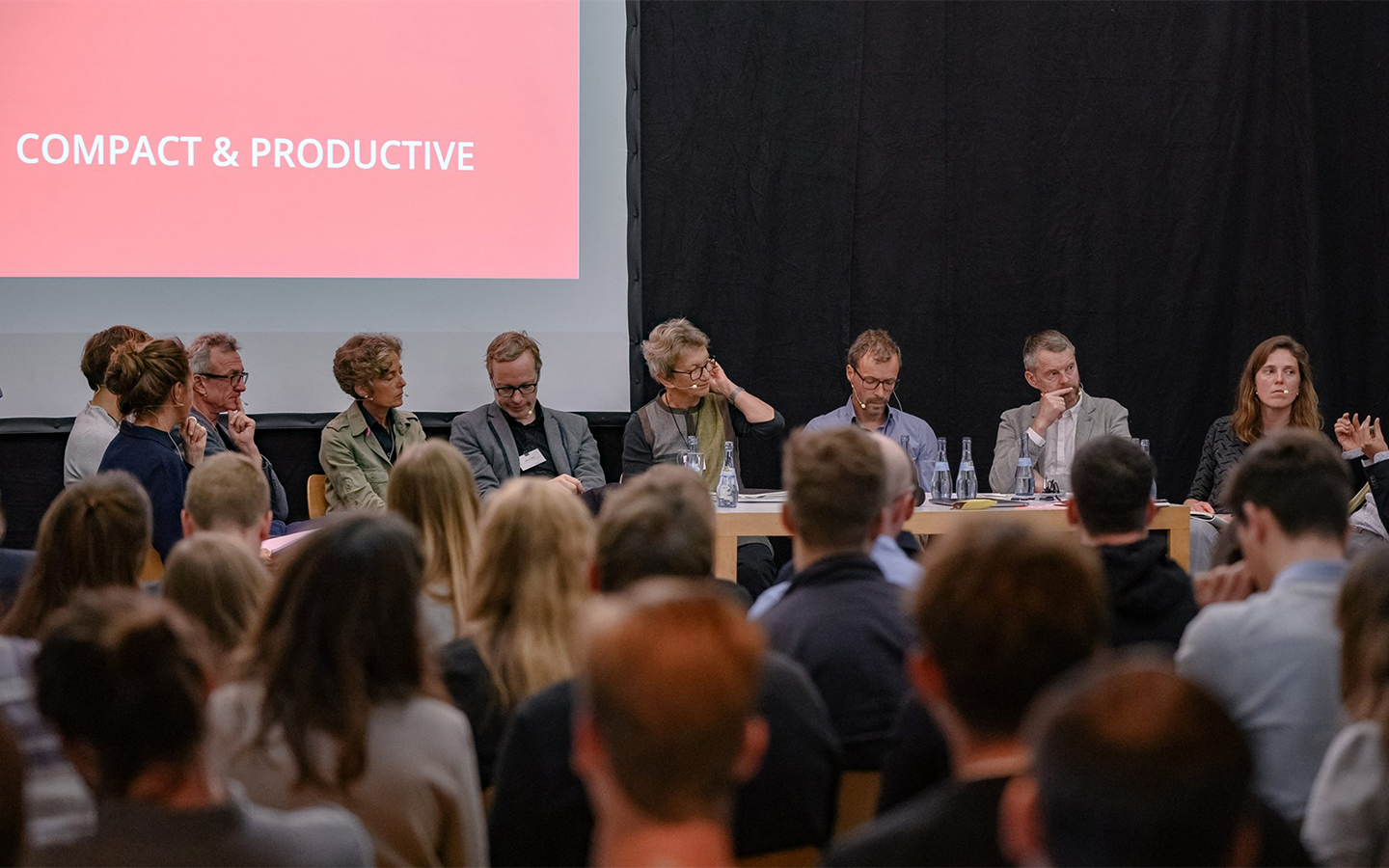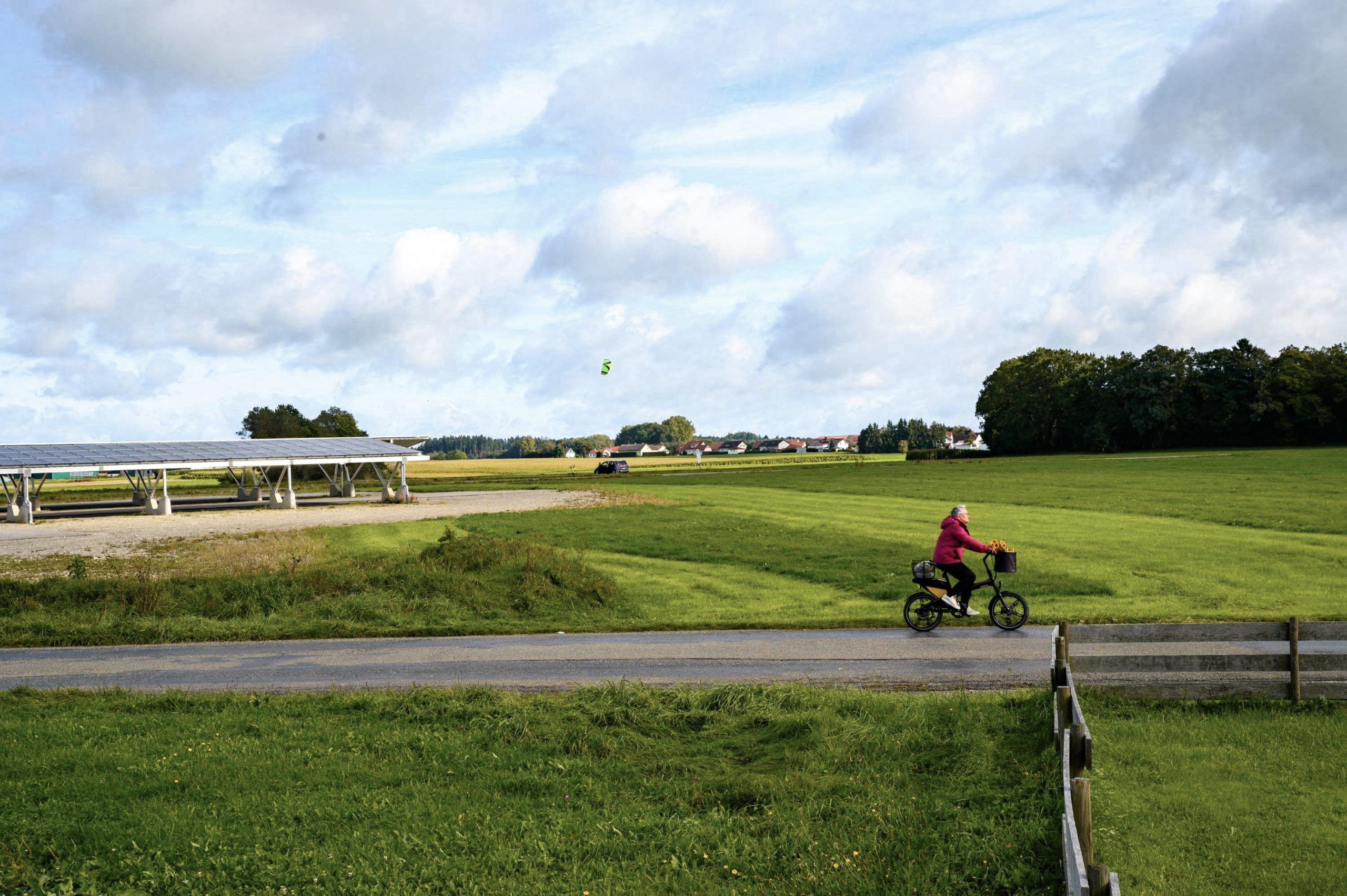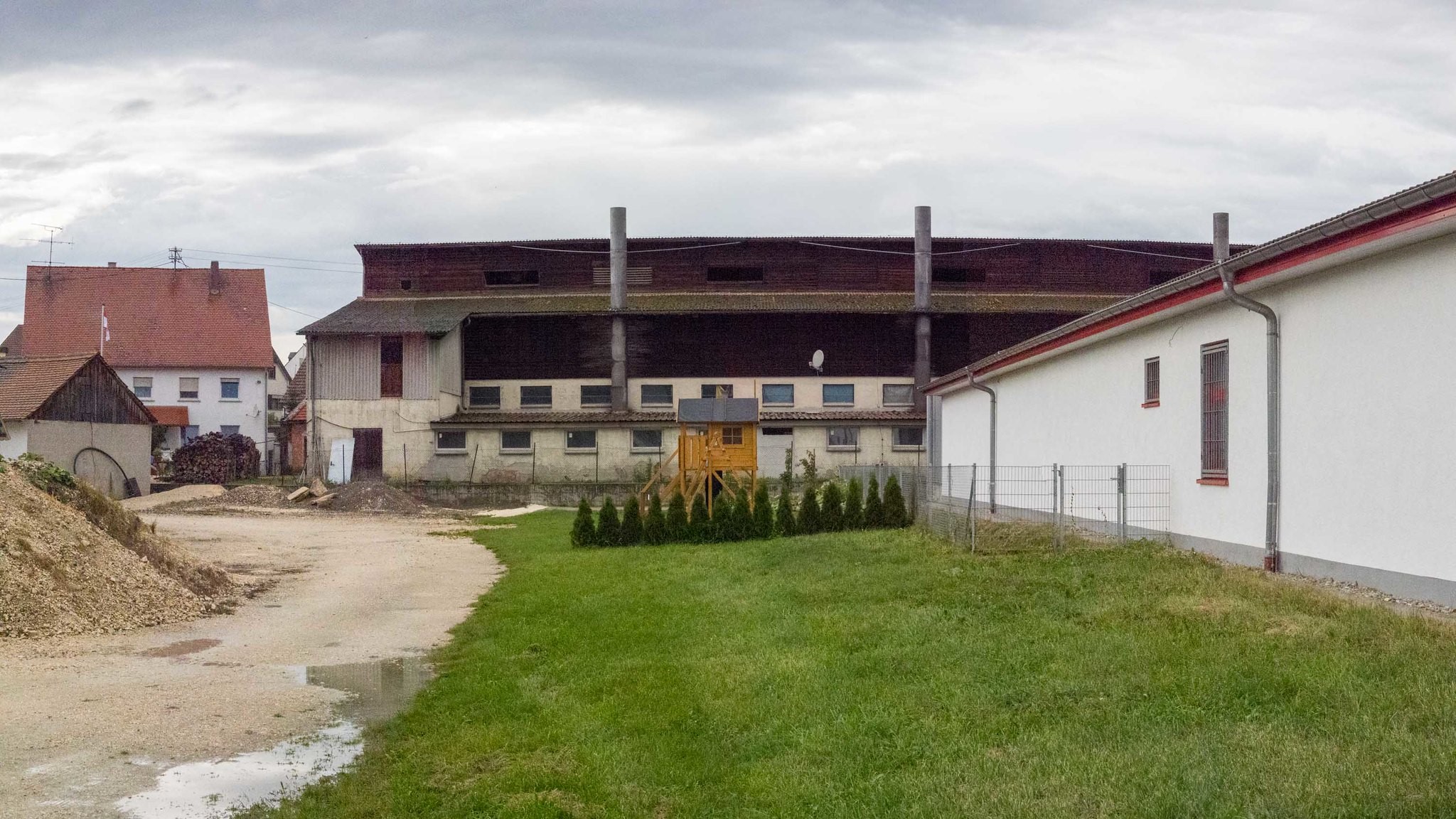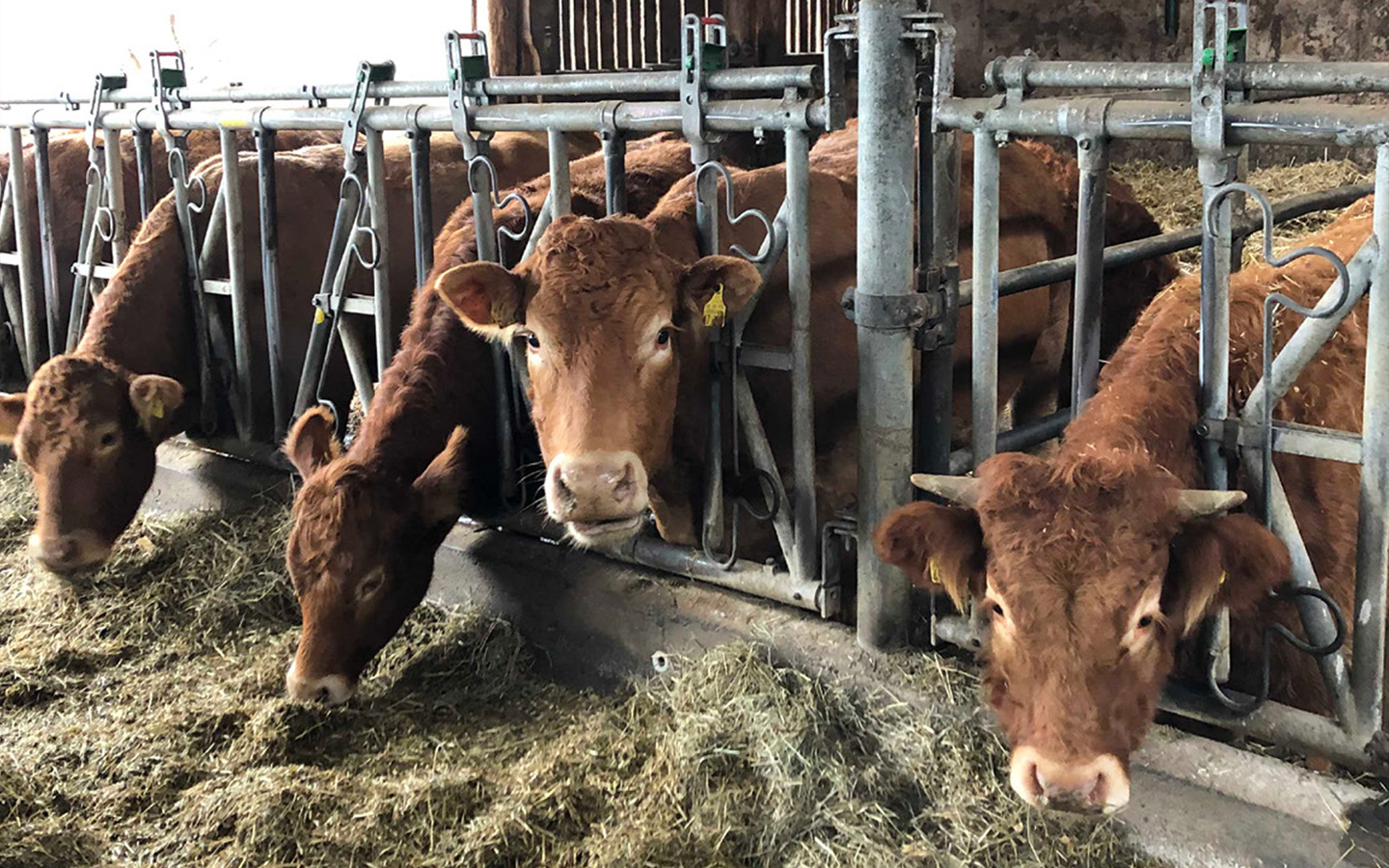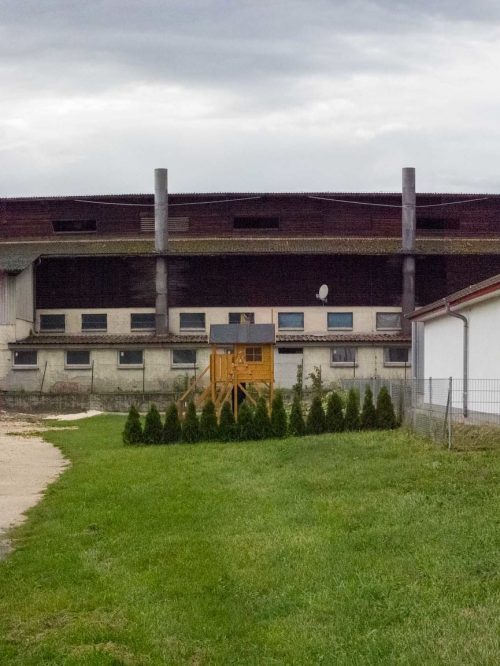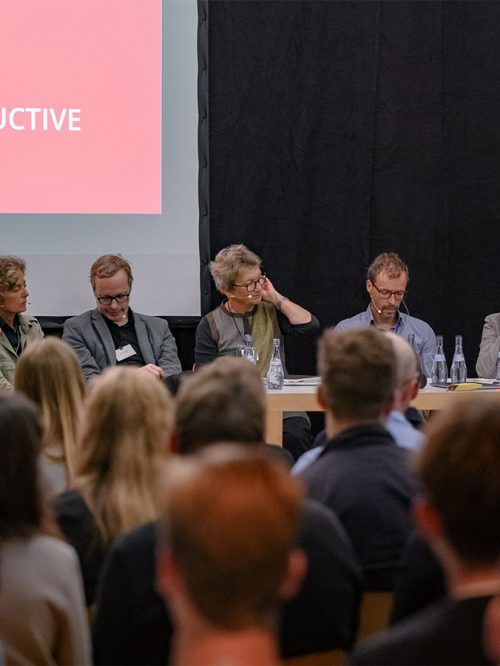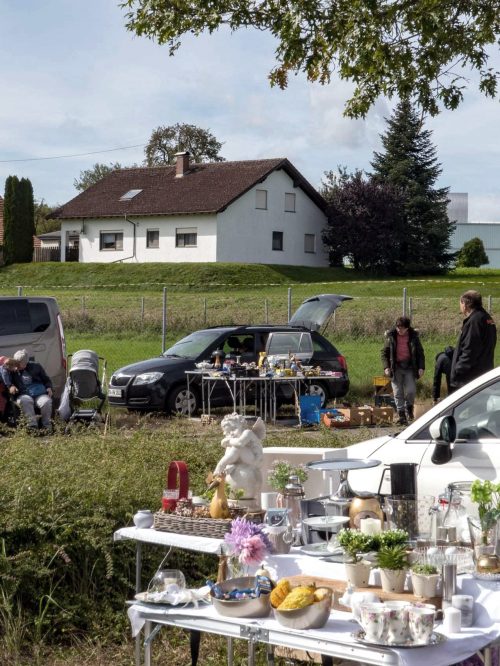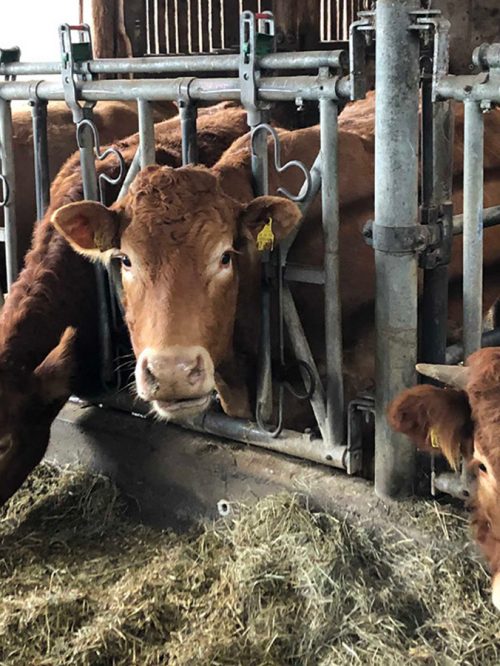Crossborder
Potentials for inter-municipal co-operations in functional urban areas
Case of the Brussels NATO/Defense Quartier
The report is the result of an urban consultancy project conducted for the Metropolitan Areas Working Group of EUROCITIES as part of the LSE Executive Master in Cities program. In line with an important focus of the working group, the consultancy’s purpose is to facilitate implementation strategies for sustainable transformation by overcoming conflicting interests on a metropolitan scale.
The NATO/Defense site at the border between Brussels-Capital-Region and the Flemish Region serves as an example to unfold and evaluate different financial strategies in their potential to leverage resilient development. The report shows how planning authorities can use them as a base to pursue an iterative and inclusive process of transformation. Three scenarios investigate different drivers to develop a “cross-border” regional landscape park on the former military site. All three approaches advocate an urban fringe park, that combines a diverse set of programs identified as stimulating in the analysis. The landscape schemes fuse ecologically valuable elements, productive areas and patches of intensified public. The three different programmatic settings, each backed with financial incentives, help to balance urban and rural interests, involve various stakeholders and tackle political bias. They all contribute to the ecological performance of the site and support Sustainable Development Goals (SDG). Each scenario establishes a different process logic, though:
01 _ an incremental approach activating a diversified bundle of stakeholders and financial sources
02 _ a large scale multi-purpose infrastructure project carried by an exemplified Green-Finance scheme
03 _ a productive landscape proposal merging large and small scale interests and contributions
The report displays dependencies between different financial mechanisms and potential stakeholder interests. In addition it identifies surplus benefits embedded in each scenario. All three options contribute effectively to achieve a substantial, albeit differing, panel of SDGs. Instead of the one best solution the summary identifies a multifaceted set of “door-openers” to stimulate a development process. The incremental approach is adept to an early opening and public activation of the site. The Green-Finance scheme can spur a dialogue with big scale political and business players. Finally, the medium scale agriculture and food agenda inspires pioneer projects and can profit from generic typologies in the context of the metropolitan fringe.

